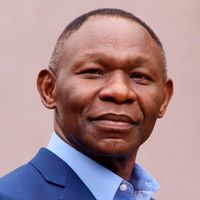
Summary
- In less than two decades, the impact of social media has gone from being an entertaining extra to a fully integrated part of nearly every aspect of daily life and making the platforms very powerful.
- Virtually the entire world is currently captive to lies and conspiracy theories propagated on these platforms.
- Although social media is treated by many people as publishers similar to traditional media, they rarely account for the works of hate groups using the space for their own agenda
In less than two decades, the impact of social media has gone from being an entertaining extra to a fully integrated part of nearly every aspect of daily life and making the platforms very powerful.
This became evident when they banned outgoing US President Donald Trump’s accounts. It also raised serious questions about the power of the social media and the role various platforms play.
In the wake of an attack on Congress some platforms are closing accounts of people whom they see as a threat to the security of the nation. This used to be the role of the state but tables seem to be turning — a few people or just a single person can act in the interest of the people without reference to law. This new normal built on the increasing power of social media may eventually undermine democratic institutions if we do not strike the balance soon.
Virtually the entire world is currently captive to lies and conspiracy theories propagated on these platforms. Although social media is treated by many people as publishers similar to traditional media, they rarely account for the works of hate groups using the space for their own agenda. And the assumption that they are a normal media misleads people, even governments, to think that censoring them would amount to going against the freedom of expression enshrined in most constitutions.
While there are many good things that people have experienced by having access to social media, there is also a negative side to social media. It should never be treated as traditional media. What makes the traditional media different from social media is that journalists who provide the content for traditional media subscribe to some principles of ethics and good practice that is absent in social media.
These platforms have made people more divided in their political opinions, incited people to violence and criminal activity as well as destroyed the confidence of some unsuspecting users. Psychologists studying the effects of social media argue that the some of the hate groups use the platforms to send out small doses of persuasive messages knowing that in the long run their lies will become reality.
The danger with such lies is that it becomes very difficult to erase them from the memories of the target groups. This strategy has been used before in Germany and it led to serious consequences when right-wing groups came up with the stab-in-the-back myth — a conspiracy theory that the Jews people had betrayed the German Army during the First World War. Adolf Hitler took advantage of the myth and started a systematic extermination of Jewish people.
The force with which thousands of people stormed the US Congress point to several years of brainwashing from determined people and criminals who are bent on propagating their own ideology through the social media. And despite the fact that the so-called leaders have been arrested, it does not mean that the movement is dead.
My greatest concern is the increasing number of video clips denigrating Africans whilst we laugh without knowing the motives of spreading such propaganda. It is worth noting that there was no protest when Trump referred to African countries as 's***hole countries’ while meeting with congressional and cabinet leaders. Racist video clips are common on social media and if we do not deal with it now, it will be a problem in the future when our confidence as a people is fully eroded.
There are many insulting video clips circulating on social media taking advantage of the continent’s past mistakes to constantly undermine the credibility of the African people. The end game is to systematically undermine the people’s confidence of their future. And unfortunately, many people have already bought these lies as truths.
There is, however, some good on social media, especially when it highlights human rights abuses throughout the world. These platforms have done even better than traditional media.
We need therefore to strike a balance between good and evil on social media.





No comments :
Post a Comment